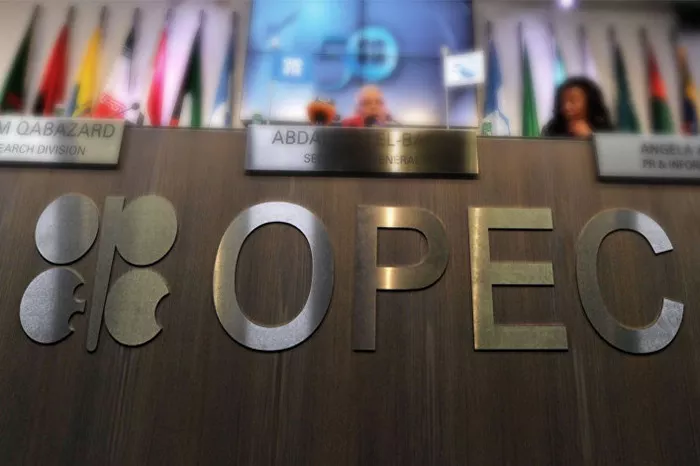Nigeria’s 2025 budget is facing significant challenges as the Federal Government aims to rely heavily on oil revenue, but OPEC’s production quotas and global market fluctuations cast a shadow over the ambitious projections. The government’s plan to raise N47.9 trillion for 2025 includes a targeted oil production of 2.06 million barrels per day (bpd) and a crude price assumption of $75 per barrel. However, with OPEC’s influence and global price volatility, Nigeria’s ability to meet these targets remains highly uncertain.
The Federal Executive Council (FEC) recently approved the Medium-Term Expenditure Framework (MTEF) for 2025-2027, which lays the foundation for the next year’s budget. Oil is expected to account for a significant portion of the revenue, with production targets set at 2.06 million bpd. At the same time, the Nigerian government has pegged the exchange rate at N1,400 to the dollar, with a growth forecast of 6.4%. These parameters, however, have been met with skepticism as they remain highly reliant on oil — a sector over which Nigeria has limited control.
The challenge stems from Nigeria’s position within OPEC, the Organization of the Petroleum Exporting Countries, which has historically played a crucial role in shaping the country’s oil production targets. While the government hopes to increase production by 42% from the current output of 1.43 million bpd, the reality is that Nigeria’s production is constrained by OPEC’s quotas. As part of the OPEC+ agreement, Nigeria’s oil output is capped at 1.5 million bpd until December 2025, a figure far below the 2 million bpd target set by the Nigerian government.
Adding to the complexity, global oil prices are unpredictable, with Brent crude trading below $72. Nigeria’s budget assumptions are built on a $75 per barrel price, but experts have expressed concerns that this may be too optimistic given the volatility in global markets. Geopolitical factors, such as the ongoing Russia-Ukraine conflict, and uncertainty surrounding the U.S. presidential election, could further disrupt oil prices. These factors highlight the fragile foundation of Nigeria’s fiscal planning, which is heavily reliant on oil revenue.
If the government fails to meet its production targets or if oil prices fall short of expectations, the fiscal deficit could widen, forcing the government to take on additional debt. To finance the 2025 budget, the government has already planned to issue $2.2 billion in Eurobonds and Sukuk bonds, including $1.7 billion in Eurobonds and $500 million in Sukuk. This move, however, introduces additional risks, especially if oil revenue does not meet projections.
The influence of OPEC and its quotas has been a longstanding issue for Nigeria. In recent years, the country has consistently fallen short of its oil production targets, largely due to infrastructure issues, oil theft, and cuts imposed by OPEC+. From 2013 to 2023, Nigeria failed to meet its production goals nearly every year. For example, the 2013 target was 2.5 million bpd, but actual production was around 2.1-2.2 million bpd. In 2020, production fell drastically to just 900,000 bpd due to the COVID-19 pandemic and OPEC+ production cuts. With the ongoing challenges in the Niger Delta region and continued underinvestment in the sector, meeting the 2.06 million bpd target for 2025 seems increasingly unlikely.
OPEC’s control over production quotas also presents a risk to Nigeria’s fiscal outlook. Although the Nigerian government hopes to push production beyond the OPEC-imposed limit, the cartel’s influence cannot be ignored. OPEC+ has already agreed to maintain Nigeria’s production at 1.5 million bpd through 2025, leaving the country with little room to maneuver. Furthermore, the cartel’s decisions on output cuts, such as those made in response to the global oil crisis, continue to limit Nigeria’s ability to meet its targets.
Energy economists like Professor Wunmi Iledare have expressed cautious optimism, noting that while OPEC’s production limits are a challenge, Nigeria’s oil production could still increase with the right investments and policy changes. However, even with improved production levels, the country remains vulnerable to external market forces. The forecasted $75 per barrel oil price is reasonable, but market fluctuations — driven by geopolitical tensions, economic slowdowns, and shifting global demand — could easily derail the government’s fiscal projections.
Nigeria’s reliance on oil revenue to fund its 2025 budget highlights the fragile state of its economy. With OPEC’s production quotas, unpredictable global oil prices, and internal challenges, the government faces an uphill battle to meet its ambitious fiscal targets. For the budget to succeed, Nigeria must navigate not only OPEC’s constraints but also the global market forces that influence oil prices, production levels, and ultimately, the country’s economic stability.
Related topic:

